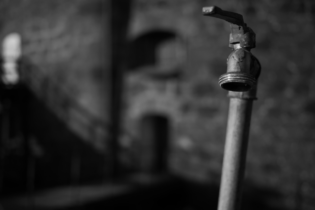The Giyani Water Treatment Works has started supplying clean, running water to 55 villages in Mopani District Municipality in Limpopo.
The water plant was opened by President Jacob Zuma during his monitoring visit to Giyani in Limpopo to assess the provision of water following recent community complaints. Giyani residents have been experiencing water problems for years, especially in winter when there is no rain. Residents in the area get their water from taps, water tankers and rivers. However, most villages depend on groundwater from boreholes. Two months ago, Water and Sanitation Minister Nomvula Mokonyane visited Giyani and promised the communities access to water. She appointed a task team, led by the Lepelle Water Board, to deal with all water related problems in the Mopani District Municipality. The team was given until the end of September to put the water supply in the Greater Giyani area back on track. The President’s visit to the Greater Giyani Local Municipality in the Mopani District Municipality formed part of the Presidential Siyahlola Monitoring Programme through which the President undertakes hands-on monitoring of service delivery.Refurbishment project 98% complete
The Giyani Water Treatment Works is part of the 26 Water Treatment Works which supplies the Mopani District.The scope of the Giyani Water Treatment Works refurbishment project, which is 98% complete, includes the construction of additional 6.7 megalitres per day capacity Water Treatment Works.
It also includes the refurbishment of the existing 30-megalitre Water Treatment Works to increase the supply to 36.7 megalitres per day. Addressing the community later at the Giyani Stadium, President Zuma admitted that there is a shortage of water in Mopani District, adding that the scale of dependence on boreholes illustrates the gravity of this challenge, even in the hospitals. “The rural areas in this part of the country are suffering, particularly when you consider that almost half of the boreholes drilled are for one or other reason not working,” President Zuma said. He also noted that water is a serious challenge in many communities and South Africa is growing into a water scarce country, particularly due to boarder changes caused by climate change and global warming. “It is not this province which faces water shortage challenges, but many others in the country do. Where there is shortage of water, sanitation is also poor and consequently health is affected. In other areas the biggest challenge is ageing infrastructure,” Zuma concluded.





